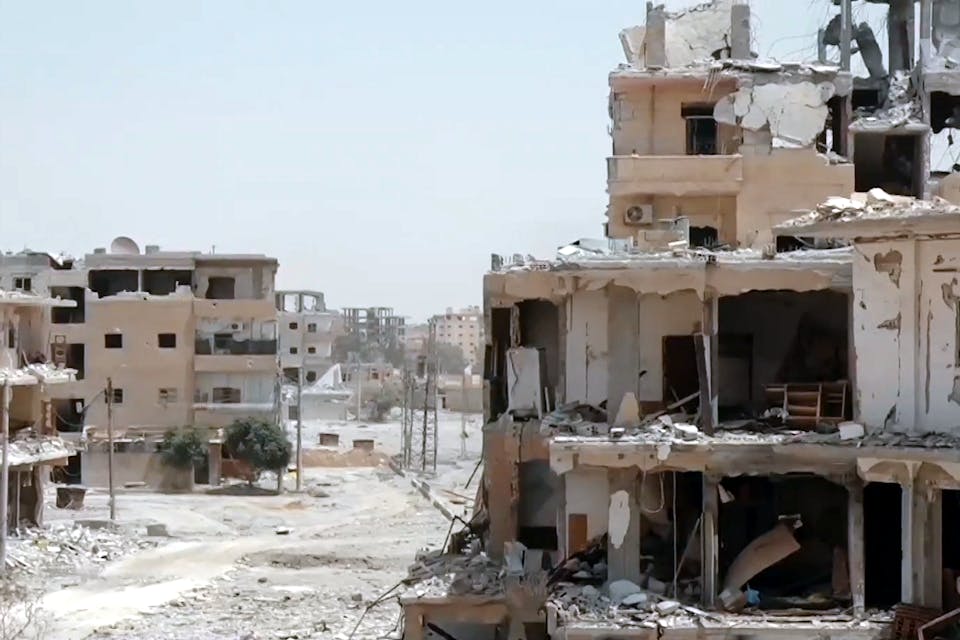
August 13, 2025
The Use and Abuse of “Genocide” by Those Who Should Know Better
Many people are delighted to be told that Israel is doing to the Palestinians of Gaza exactly what the Nazis did to the Jews of Europe.
When I wrote a column in January, 2024 on the term “genocide” and its use by some to describe Israel’s war on Hamas in Gaza, I pointed out that the term, as defined by international law and the 1948 UN Convention on Genocide, is practically meaningless and applicable to a wide range of criminally defined excesses unrelated to the original sense given it in 1944, at the height of the Holocaust, by the Polish-Jewish lawyer Rafael Lemkin: namely, the murder or attempted murder of an entire population or ethnic group. Why, then, should we feel so appalled when the charge of genocide continues to be hurled against Israel—most recently, by such prominent Israelis and Jews as the highly regarded Holocaust scholar Omer Bartov, the acclaimed Hebrew novelist David Grossman, and the president of J Street Jeremy Ben-Ami? If “genocide” can refer to almost any situation in which a civilian population is made to suffer unduly by a ruling or warring power, as no right-minded person would question has been the case in Gaza, what reason is there to react with such horror when the term is applied, even if unfairly, to Israel?
It is perfectly legitimate to accuse Israel of war crimes in Gaza, just as it is perfectly legitimate to defend it against such accusations. Such Israeli policies as bombing buildings and areas inhabited by large numbers of non-combatants in order to strike a single military target; driving hundreds of thousands of people from their homes, often repeatedly, for the purpose of creating fire-free zones; razing dwellings thus evacuated to the ground and so ensuring that their owners and tenants can never return to them; dismissing repeated warnings of impending hunger and starvation and then taking inadequate measures against such conditions when they materialize—all of this behavior, it can be argued, has been criminally excessive. Equally, the case can be made that such actions have been justified by the need to root out a vile terrorist organization that hides in extensive networks of tunnels beneath civilian neighborhoods, uses schools, hospitals, and private houses for military ends, and loots and enriches itself from humanitarian aid convoys. There is plenty of room here for honest debate.
Excessive brutality has been common in the history of warfare, frequently with worse results than Gaza’s. When America dropped an atomic bomb on Hiroshima, killing an estimated 140,000 people, nearly all of them civilians, the claim could be made, however questionable, that this was a necessary measure to end the war with Japan; it is far more difficult, however, to make the case that the dropping of a second bomb on Nagasaki five days later, with the taking of another 70,000 lives, was an act of military necessity—or to put it more bluntly, anything but a horrendous war crime. Yet while accusations to this effect were made at the time, not even America’s harshest critics accused it of genocide, since in 1945, when the bombs were dropped, this newly minted term, which few people were familiar with, still had not been debased. No one thought that the United States had any intention of killing all Japanese or even a significant portion of them.